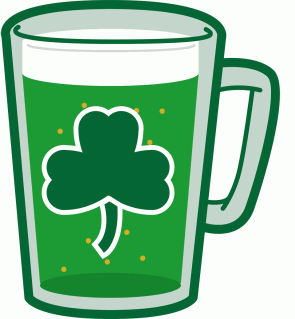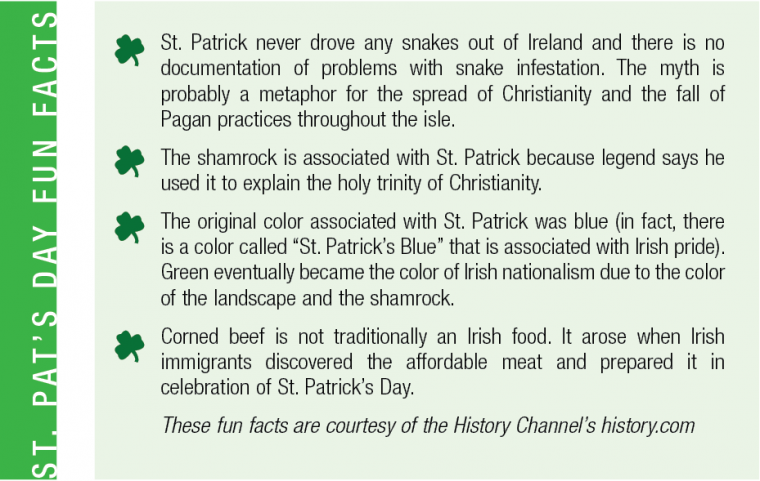 Does St. Patrick’s Day have historical “drinking roots” or is the practice of imbibing some modern skew of the original celebration?
Does St. Patrick’s Day have historical “drinking roots” or is the practice of imbibing some modern skew of the original celebration?
Irish and non-Irish alike are out in their finest, greenest attire today in celebration of St. Patrick’s Day. Besides wearing green and eating corned beef and cabbage, the other activity many people associate with the holiday is drinking.
Traditionally, St. Paddi’s Day falls during lent and celebrates the work of its namesake. St. Pat de-heathenized the country and spread Christianity throughout the isle. Christians in Ireland then had an excuse to take a break from lent for the cause of celebration of St. Patrick and his work. This break probably meant that they had a free ticket to indulge in what they had given up for lent; beer or some other form of alcohol were common lent sacrifices.
Arguably, the modern celebration of many holidays has been taken to extremes. Thanksgiving has become a free-for-all of overeating, Christmas a gift-giving consumer-driven nightmare, and St. Valentine’s Day has become so clad in candy and pink hearts that it is almost too cutesy to handle. The original meaning of St. Patrick’s Day seems to have fallen victim to this “uber-celebrationism.”
St. Patrick’s Day is now more a celebration of Irish nationalism and pride than a day of celebration for the spread of Christianity. I’m not implying that this modern manifestation of the holiday is in bad form or cause for a wagging finger, though. Having pride in one’s heritage (or in many cases someone else’s) and using St. Patrick’s Day to celebrate it is perfectly fine in my book.
I am all for an excuse to party down and drink good-grade green dye, but I am not thrilled about the idea of the major day of celebration of Irish culture being one giant kegger.
Though the holiday does have a historic tie to drinking , this probably should not be the main focus of celebration.

